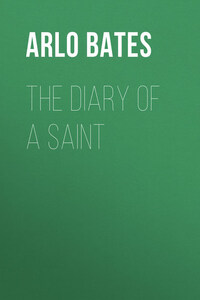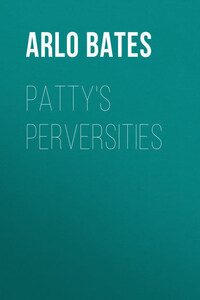January 1. How beautiful the world is! I might go on to say, and how commonplace this seems written down in a diary; but it is the thing I have been thinking. I have been standing ever so long at the window, and now that the curtains are shut I can see everything still. The moon is shining over the wide white sheets of snow, and the low meadows look far off and enchanted. The outline of the hills is clear against the sky, and the cedars on the lawn are almost green against the whiteness of the ground and the deep, blue-black sky. It is all so lovely that it somehow makes one feel happy and humble both at once.
It is a beautiful world, indeed, and yet last night —
But last night was another year, and the new begins in a better mood. I have shaken off the idiotic mawkishness of last night, and am more like what Father used to tell me to be when I was a mite of a girl: "A cheerful Ruth Privet, as right as a trivet." Though to be sure I do not know what being as right as a trivet is, any more than I did then. Last night, it is true, there were alleviating circumstances that might have been urged. For a week it had been drizzly, unseasonable weather that took all the snap out of a body's mental fibre; Mother had had one of her bad days, when the pain seemed too dreadful to bear, patient angel that she is; Kathie Thurston had been in one of her most despairing fits; and the Old Year looked so dreary behind, the New Year loomed so hopeless before, that there was some excuse for a girl who was tired to the bone with watching and worry if she did not feel exactly cheerful. I cannot allow, though, that it justified her in crying like a watering-pot, and smudging the pages of her diary until the whole thing was blurred like a composition written with tears in a primary school. I certainly cannot let this sort of thing happen again, and I am thoroughly ashamed that it happened once. I will remember that the last day Father lived he said he could trust me to be brave both for Mother and myself; and that I promised, – I promised.
So last night may go, and be forgotten as soon as I can manage to forget it. To-night things are different. There has been a beautiful snow-fall, and the air is so crisp that when I went for a walk at sunset it seemed impossible ever to be sentimentally weak-kneed again; Mother is wonderfully comfortable; and the New Year began with a letter to say that George will be at home to-morrow. Mother is asleep like a child, the fire is in the best of spirits, and does the purring for itself and for Peter, who is napping with content expressed by every hair to the tip of his fluffy white tail. Even Hannah is singing in the kitchen a hymn that she thinks is cheerful, about
"Sa-a-a-acred, high, e-ter-er-er-nal noon."
It is evident that there is every opportunity to take a fresh start, and to conduct myself in the coming year with more self-respect.
So much for New Year resolutions. I do not remember that I ever made one before; and very likely I shall never make one again. Now I must decide something about Kathie. I tried to talk with Mother about her, but Mother got so excited that I saw it would not do, and felt I must work the problem out with pen and paper as if it were a sum in arithmetic. It is not my business to attend to the theological education of the minister's daughter, especially as it is the Methodist minister's daughter, and he, with his whole congregation, thinks it rather doubtful whether it is not sinful for Kathie even to know so dangerous an unbeliever. I sometimes doubt whether my good neighbors in Tuskamuck would regard Tom Paine himself, who, Father used to say, lingers as the arch-heretic for all rural New England, with greater theological horror than they do me. It is fortunate that they do not dislike me personally, and they all loved Father in spite of his heresies. In this case I am not clear, on the other hand, that it is my duty to stand passive and see, without at least protesting, a sensitive, imaginative, delicate child driven to despair by the misery and terror of a creed. If Kathie had not come to me it would be different; but she has come. Time after time this poor little, precocious, morbid creature has run to me in such terror of hell-fire that I verily feared she would end by going frantic. Ten years old, and desperate with conviction of original sin; and this so near the end of the nineteenth century, so-called of grace! Thus far I have contented myself with taking her into my arms, and just loving her into calmness; but she is getting beyond that. She is finding being petted so delightful that she is sure it must be a sin. She is like what I can fancy the most imaginative of the Puritan grandmothers to have been in their passionate childhood, in the days when the only recognized office of the imagination was to picture the terrors of hell. I so long for Father. If he were alive to talk to her, he could say the right word, and settle things. The Bible is very touching in its phrase, "as one whom his mother comforteth," but to me "whom his father comforteth" would have seemed to go even deeper; but then, there is Kathie's father, whose tenderness is killing her. I don't in the least doubt that he suffers as much as she does; but he loves her too much to risk damage to what he calls "her immortal soul." There is always a ring of triumph in his voice when he pronounces the phrase, as if he already were a disembodied spirit dilating in eternal and infinite glory. There is something finely noble in such a superstition.














